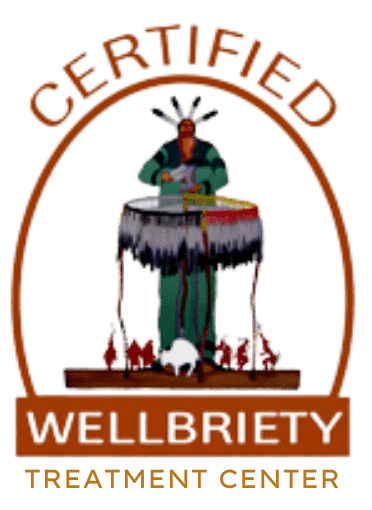Alcohol
As a society, we are no stranger to alcohol. Alcohol is everywhere, available at convenience with a global impact. There are an estimated 16 million people suffering from Alcohol Use Disorder in the United States. Alcohol is often viewed as an acceptable substance to use, however, like with the compulsive use of any substance, it is extremely dangerous and can cause a variety of consequences.
The Effects of Alcohol
The immediate effects of alcohol are dependent on factors from person-to-person, including: the volume of alcohol used, the frequency you are drinking, your age, health status, and your family history. Alcohol is able to enter your blood stream after the first sip, your BAC or blood-alcohol concentration is a unit to measure the amount of alcohol in your system; you become more impaired as your BAC rises. Alcohol abuse can have an extreme effect on your health, some of these effects can cause permanent damage to your internal organs.
Immediate Effects of Alcohol
The immediate side effects of alcohol include: lowered inhibitions, impaired motor skills, slurred speech, confusion, memory issues, problems concentrating, breathing problems, coma, and death. Other risks of heavy drinking include risk of accidents, violent behavior, impulsivity, suicide and homicide. Alcohol Use Disorder is life threatening, both in what it causes internally and externally.
Long Term Effects of Alcohol Addiction
Long term, alcohol addiction can severely effect your body’s functioning. Alcohol use can disrupt normal brain functioning, which is why alcohol abuse and mental health are related. The disruption in brain functioning can cause mood shifts and behavioral changes, as well as your ability to think clearly and move with coordination. Drinking also can cause: heart damage, liver inflammation and deterioration, pancreatitis, and cancer. Did you know that the National Toxicology Program of the U.S. Department of Health and Human Services identifies the consumption of alcohol as a known human carcinogen? This means that the U.S. Department of Health and Human Services is well-aware that drinking can cause cancer. Drinking also destroys the immune system, making drinkers much more susceptible to infections and disease. The National Institute on Alcohol Abuse and Alcoholism clearly states that heavy drinking, whether it be on a continued basis or a single occasion, can take a serious toll on your health.
Main Signs of Alcohol Addiction
Alcohol addiction or Alcohol Use Disorder can be identified by meeting two or more of the following criteria, within the span of a 12-month period:
In the past year, have you or a loved one…
- Had times when you ended up drinking more, or longer than you intended?
- More than once wanted to cut down or stop drinking, or tried to, but couldn’t?
- Spent a lot of time drinking? Or being sick or getting over the aftereffects?
- Experienced craving — a strong need, or urge, to drink?
- Found that drinking — or being sick from drinking — often interfered with taking care of your home or family? Or caused job troubles? Or school problems?
- Continued to drink even though it was causing trouble with your family or friends?
- Given up or cut back on activities that were important or interesting to you, or gave you pleasure, in order to drink?
- More than once gotten into situations while or after drinking that increased your chances of getting hurt (such as driving, swimming, using machinery, walking in a dangerous area, or having unsafe sex)?
- Continued to drink even though it was making you feel depressed or anxious or adding to another health problem? Or after having had a memory blackout?
- Had to drink much more than you once did to get the effect you want? Or found that your usual number of drinks had much less effect than before?
- Found that when the effects of alcohol were wearing off, you had withdrawal symptoms, such as trouble sleeping, shakiness, irritability, anxiety, depression, restlessness, nausea, or sweating? Or sensed things that were not there?
Alcohol Withdrawal
Alcohol withdrawal symptoms can range in intensity from mild to severe symptoms. Alcohol withdrawal happens when there is a level of physical dependency on alcohol, and usually happens around 8 hours after the last drink. Alcohol withdrawal symptoms can be as mild as agitation, or as severe as delirium tremens. Alcohol withdrawal symptoms occur in three stages, beginning at about 8 hours after your last drink. Stage one includes mild symptoms, stage two alcohol withdrawal symptoms are considered moderate, while stage three alcohol withdrawal symptoms are severe. Common alcohol withdrawal symptoms include the following: abdominal pain, nausea, anxiety, insomnia, high blood pressure, fever, abnormal heart rate, agitation, confusion, seizures, and hallucinations. If people suffering from alcohol withdrawal symptoms do not find alcohol treatment centers that attend to their symptoms, untreated alcohol withdrawal can last for multiple weeks.
Treating alcohol withdrawal safely requires a medical detox treatment center, equipped with medical professionals to monitor guests 24/7. During an alcohol detox, the guest may not only experience physical problems, but also mental health disorders can become prominent as the guest’s brain chemistry attempts to return to an equilibrium after continued alcohol abuse.
Alcohol treatment centers first should detox guests from the physical withdrawal symptoms associated with alcoholism. After physical symptoms of alcohol withdrawal are treated, it is highly recommended to treat the effect of alcohol abuse through either inpatient or outpatient treatment programs. An alcohol or substance abuse and mental health facility is most common for treatment in the recovery process, following medical detox. An alcohol rehab program that focuses on mind, body and spirit is ideal to restore a guest with alcohol addiction to a state of freedom from their addiction.
At Royal Life Centers, we offer treatment options that guide guests through stages of recovery in the body, mind and spirit. Royal Life Centers wants to help you navigate recovery, to bring forth support and hope for a new way of living. We have treatment options at every level of care, all for the common goal of lasting sobriety. If you have any questions or want more information, please reach out to us at 1-800-RECOVERY or 877-732-6837, we are available to speak with you 24/7. You can also visit us at our website.
“Alcohol Facts and Statistics.” Overview of Alcohol Consumption, National Institute of Alcohol Abuse and Alcoholism, www.niaaa.nih.gov/alcohol-health/overview-alcohol-consumption/alcohol-facts-and-statistics.
“Alcohol Use Disorder.” Alcohol & Your Health, National Institute on Alcohol Abuse and Alcoholism, www.niaaa.nih.gov/alcohol-health/overview-alcohol-consumption/alcohol-use-disorders.















